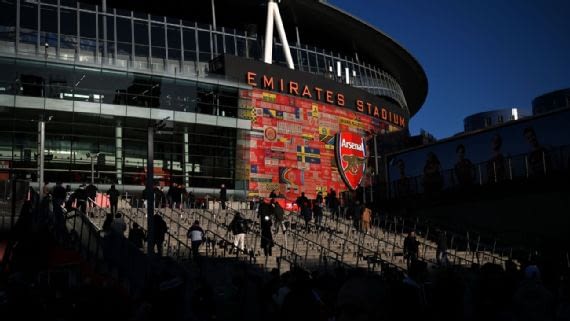Arsenal’s Financial Rollercoaster: A Year of Record Revenue and Rising Wages
In a year filled with both triumphs and challenges, Arsenal has announced a financial loss of £17.7 million ($22.3 million) for the year ending May 31, 2024. This announcement comes despite the club generating a record-breaking revenue of £616.6 million over the 12-month period, a significant increase from the £466.7 million reported the previous year. A notable £52.4 million of this revenue came from player trading, highlighting the club’s active engagement in the transfer market.
Arsenal’s return to the Champions League after a six-year absence was a highlight of the season. The team reached the quarterfinals, where they faced a tough opponent in Bayern Munich, ultimately losing 3-2 on aggregate. The women’s team also made headlines by playing six games at the Emirates Stadium, including a record-setting Women’s Super League (WSL) attendance of 60,160 for their match against Manchester United.
Wage Increases and Transfer Market Activity
The financial report reveals a significant increase in wages, rising from £234.8 million to £327.8 million. This increase is partly attributed to Arsenal’s active transfer market activity, which included high-profile signings such as Declan Rice from West Ham for a fee of up to £105 million, Kai Havertz from Chelsea for £67.5 million, and Jurriën Timber for an initial fee of £38 million.
On the sales front, Arsenal made significant moves by allowing Folarin Balogun to join Monaco for around £35 million and Granit Xhaka to transfer to Bayer Leverkusen for £21.4 million. However, the club has suggested that UEFA’s Financial Fair Play regulations and the Premier League’s Profit and Sustainability Rules (PSR) have created a more challenging market for raising funds.
A statement on the club’s website released alongside their latest figures on Wednesday read: “Player trading profits continue to have a significant impact on overall profitability and the club’s ability to realise profits during 2023/24 was again adversely impacted by market conditions with reduced overall liquidity as clubs’ acquisition budgets continued to be impacted by financial pressures.”
Compliance and Criticism
The Premier League has confirmed that all 20 clubs, including Arsenal, are fully compliant with PSR rules for the last season. Despite this compliance, Arsenal faced criticism for not signing a striker during the summer and January transfer windows, which are not covered in these latest accounts. The club’s net spend last summer was around £13 million, with additions like Riccardo Calafiori, Mikel Merino, and the permanent signing of David Raya from Brentford. Raheem Sterling also joined on loan from Chelsea.
- Emile Smith Rowe joined Fulham.
- Eddie Nketiah transferred to Crystal Palace.
- Aaron Ramsdale moved to Southampton after three years with Arsenal.
These sales, particularly of academy graduates like Smith Rowe and Nketiah, are considered pure profit in PSR terms, which is crucial for the club’s financial health.
Transfer Market Challenges
Arsenal made a late attempt to sign Ollie Watkins from Aston Villa, but their £40 million bid was rejected. The club viewed the 29-year-old’s £60 million valuation as too high, highlighting the challenges of navigating the current transfer market.
The statement concluded: “Consecutive qualifications for the UEFA Champions League for 2024-25 for both men’s and women’s teams represent a positive continuation of the club’s progress and we look forward to an exciting end to the 2024-25 season.”
Originally Written by: James Olley





















